
Orange spider with black and white striped legs. Strong web. Araneus
The southern black widow spider is well-known throughout much of the United States. It's one of the more venomous spiders, though its venom is rarely deadly in people. It has a rounded, shiny black abdomen and pretty long legs. They can grow up to 13 mm, excluding the legs. They're often called simply "black widows.".

Marbled orbweaver spider / Araneus m. marmoreus. Letchworth State Park
Identifying The Most Common Orange and Black Spider Fall, in the Eastern US, is a time for my favorite spiders to start showing themselves. I admit a soft spot for orange spiders, because they always signal fall and Halloween to me, a changing of the seasons if you will. So what is the most common orange and black spider you see right now?
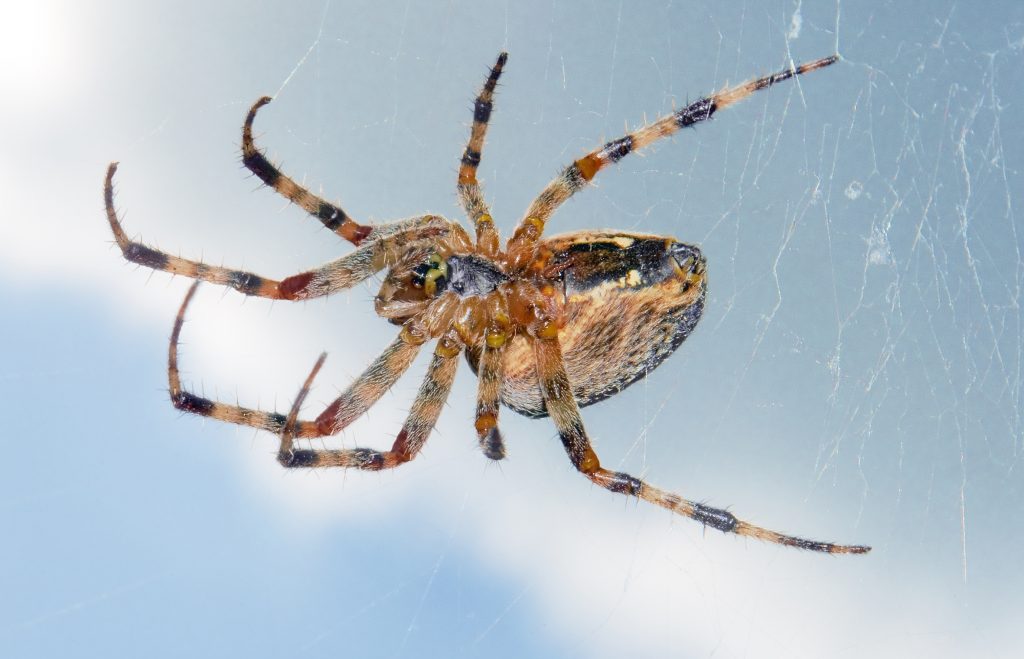
Spinnen KAD
The cardinal jumper is a tiny red spider with black hairy legs. It has a red-orange fuzzy body. The black hairy legs, fuzzy orangey-red body, and two prominent eyes on the front of its cephalothorax are all identifying features of this colorful spider. Cardinal jumping spiders are about 0.4 inches (10 millimeters) long.
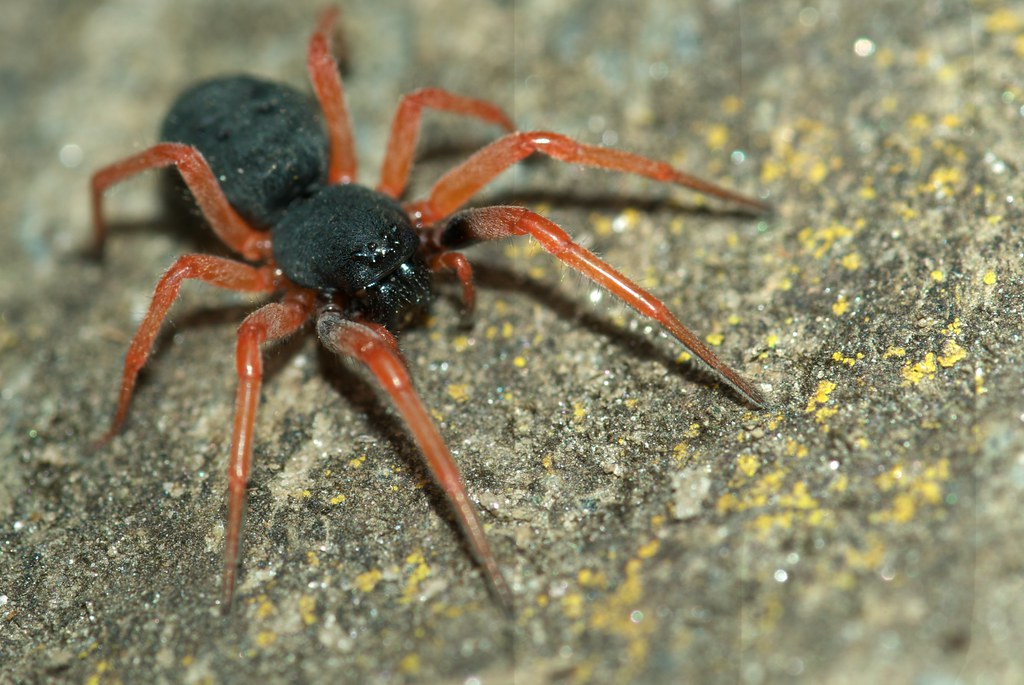
Orange legged spider Found during a day hike between Salka… Flickr
Browse 1,300+ orange spider with black legs stock photos and images available, or start a new search to explore more stock photos and images. Sort by: Most popular. Cute Dangling Cartoon Spider Vector illustration of a cute smiling spider hanging above his shadow on an orange background. orange spider with black legs stock illustrations.

ID Request Located in Norfolk, England. Orange legs, dark body with
Female black house spiders grow 0.7" (1.8 cm) long with a leg span of 1.1" (3 cm). Common house spiders have a poisonous bite but are not aggressive or dangerous. A black house spider bite usually causes pain and local swelling. Common black house spiders typically live in wall crevices, window frames, or corners of doorways.

Orange and Black Bold Jumping Spider Isolated Stock Photo Image of
Classification: HARMLESS These strange looking spiders are flattened, usually black with orange legs. They are wanderers and don't build webs. There are nine species in South Africa. They can be found under the bark of trees or under stones and pot plants. They are secretive and escape as quick as they can when encountered.
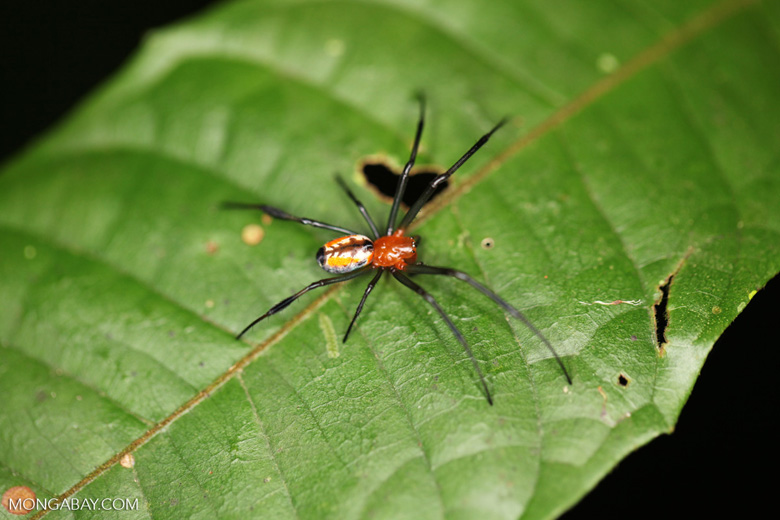
Orange spider with black legs
Black Widow Spider. Black Widow. Size: Adult female is about 1/2 inch long. Color: Adult females are glossy black with a variable number of red markings on the top and bottom of abdomen. Adults males are similar, but with a few white markings. Juveniles are highly variable. Features: Abdomen is nearly spherical on adult females and juveniles. Male is slimmer with longer legs (pictured here).

Orange spider with black legs
How to Identify Spiders You can identify spiders by their eight legs, the color of their abdomen and cephalothorax (head), six or eight eyes, and mouthparts (chelicerae). In addition, some spiders have identifiable markings such as spots, dots, or spiny bodies and legs. It's also possible to identify species of spiders by the webs they spin.

Phidippus Johnsoni RedBacked Jumping Spider USA Spiders
There are 5 species found in the USA & Canada. All 5 species can be black & red in color though the brown widow is usually a light brown. The red hourglass (sometimes orange) is found on the ventral side of the abdomen. However, all species can also have orange (sometimes red) markings on the dorsal side of the abdomen. Red Widow ♀ Brown Widow ♀
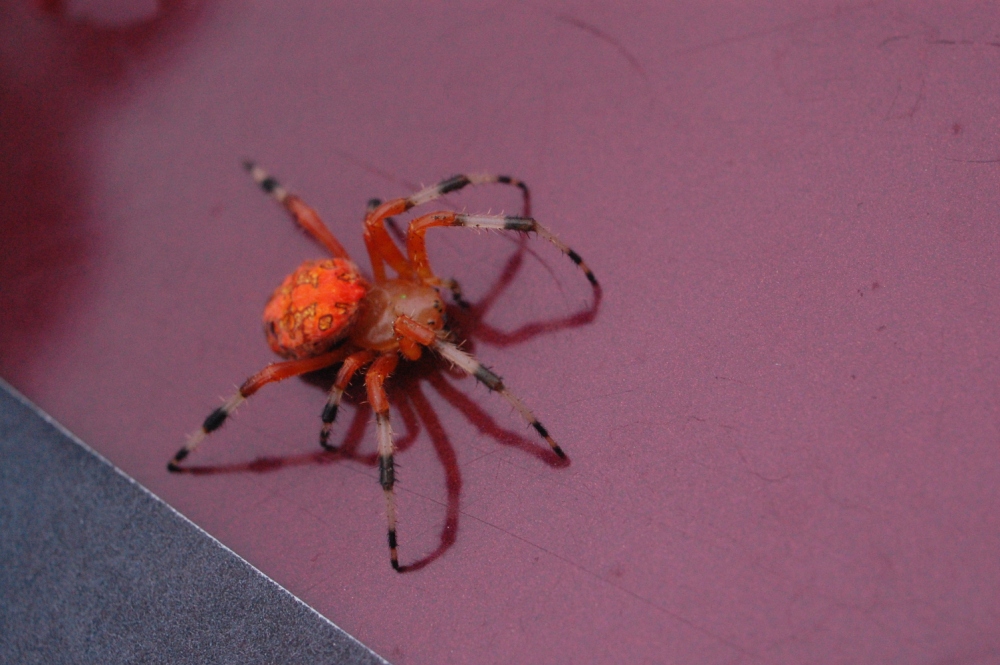
Marbled Orb Weaver Jamcleat
In addition, some tiny jumping spiders have an orange abdomen and black cephalothorax—the characteristic fused head and thorax that all spiders have. There is also a type of spider— Theridion grallator —that develops an orange abdomen after consuming certain insects. All species of orange spiders spin a silky web.
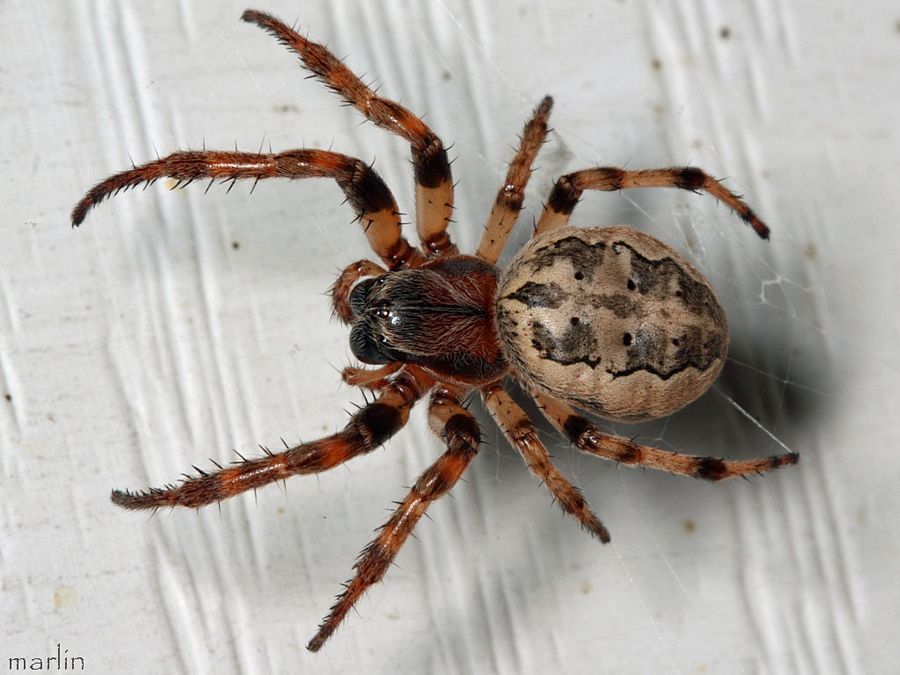
Orb Weaver Spiders Family Araneidae North American Insects & Spiders
#2. Cellar Spider Pholcidae Identifying Characteristics: Cephalothorax (head) and abdomen are different shades of brown. Less than a 1/2-inch (12.7 mm) body, 2-inch (51 mm) long legs, and the body is the shape of a peanut. Some species have 8 eyes, while others only have 6 eyes. You know that spider that is always in the corners of your basement?

weather Jamcleat
All spiders have two body regions (cephalothorax and unsegmented abdomen), eight legs (each with seven segments), a pair of pedipalps, a pair of chelicerae (jaws) and either six or eight simple eyes .. spider, Steatoda borealis, and false black widow, S. grossa, rank among the most commonly-encountered spiders in
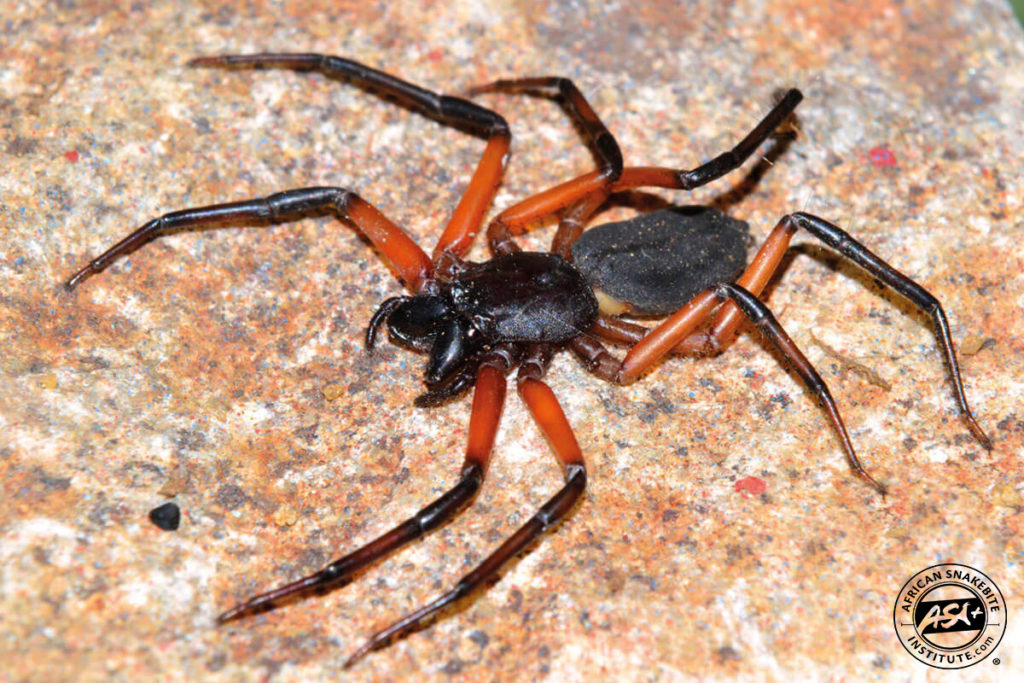
Scorpion Spider African Snakebite Institute
Scientific name: Dysdera crocata. Common name: woodlouse hunter, sowbug hunter, sowbug killer, pillbug hunter, slater spider. Woodlouse spiders feed o woodlice, with females growing to 15mm and males to 10mm in body length. They have an orange to red-colored cephalothorax and legs with a pale beige to yellow/brown abdomen.

Common Spiders In Maryland
By Jessica Nolan, Gardening Expert Animals Florida is home to many types of spiders — some are harmless, and some are highly venomous. The two most common venomous spiders in Florida are the brown recluse spider and the black widow spider.
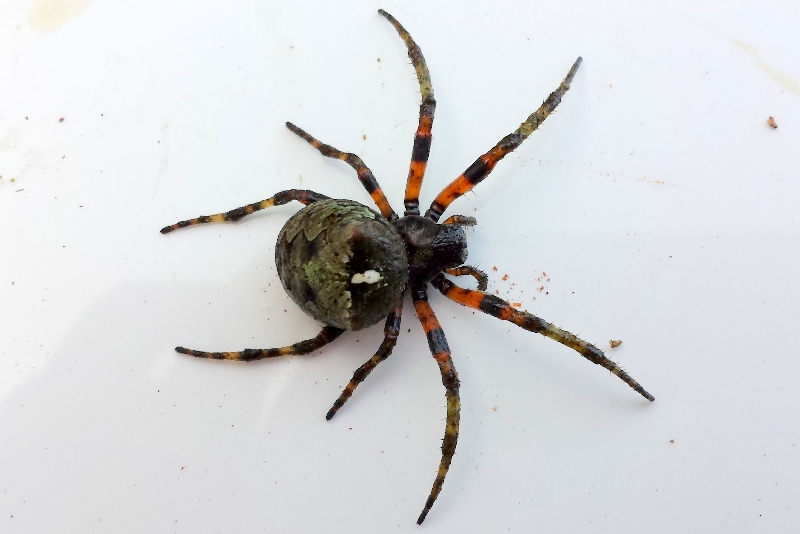
Spider ID PlantDOC
Some spiders have red or orange legs. From small orb-weavers to large tarantulas, there are different species with a vast range of orange nuance legs. Orange-brown legs and orange-to-red legs are some of the typical nuances of spider legs. The various orange colors of the legs can also appear slightly translucent.
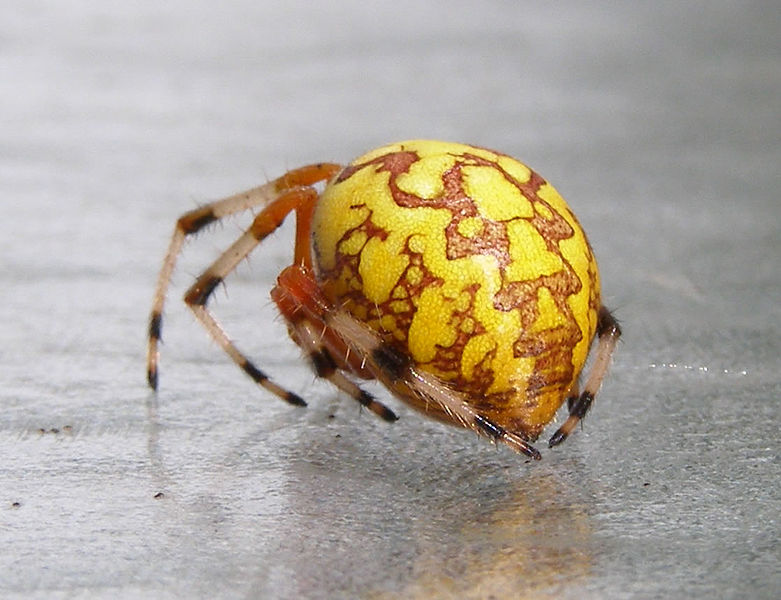
What is That Big Orange Spider? The Infinite Spider
The northern black widow usually grows to 0.5" (13 mm). However, together with the black and orange legs, this black widow spider can measure 1.5" (38 mm). The appearance of red abdominal markings is the way to tell a northern black widow apart from the southern species.